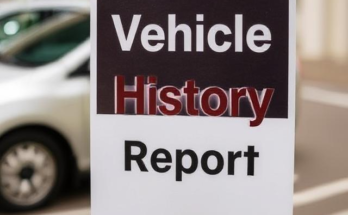Purchasing a used vehicle in the United States can be a cost-effective alternative to buying new. However, it’s essential to conduct thorough research to avoid potential pitfalls. Key aspects to examine include the vehicle’s Junk, Salvage, or Total Loss Vehicle Titles, Ownership Records, and available Vehicle Images. Understanding these elements can help you make an informed decision and ensure a satisfactory purchase.
Understanding Junk, Salvage, and Total Loss Vehicle Titles
When a vehicle has sustained significant damage, it may be assigned a specific title to indicate its condition:
-
Junk Title: This designation is given to vehicles that are deemed non-repairable and are typically sold for parts or scrap.
-
Salvage Title: A vehicle receives a salvage title when it has been damaged to the extent that repair costs exceed a certain percentage of its value, often around 75%. Such vehicles have often been in major accidents, floods, or fires.
-
Total Loss: This term is used when an insurance company determines that the cost of repairing a damaged vehicle exceeds its current market value. In such cases, the vehicle is often declared a total loss and may receive a salvage title.
Purchasing a vehicle with any of these titles can lead to challenges, including difficulties in obtaining insurance, reduced resale value, and potential safety concerns. It’s crucial to be aware of a vehicle’s title status before making a purchase.
Importance of Ownership Records
Ownership records provide a detailed history of a vehicle’s previous owners and usage. Reviewing these records is vital for several reasons:
-
Number of Previous Owners: A high number of past owners in a short period may indicate underlying issues with the vehicle.
-
Usage History: Ownership records can reveal if the vehicle was used for personal, commercial, or rental purposes, which can impact its wear and tear.
-
Title Transfers: Frequent title transfers or transfers between different states might suggest attempts to conceal the vehicle’s history.
Understanding the ownership history helps assess the vehicle’s condition and anticipate potential future problems.
Evaluating Vehicle Images
Visual inspection plays a crucial role in assessing a used vehicle’s condition. High-quality images can provide insights into:
-
Exterior Condition: Photos can reveal dents, scratches, rust, or mismatched paint, indicating past accidents or repairs.
-
Interior Wear and Tear: Images of the interior can show the condition of seats, dashboard, and other components, reflecting how well the vehicle was maintained.
-
Undercarriage and Engine Bay: Pictures of these areas can help identify leaks, corrosion, or other mechanical issues.
Requesting and carefully examining vehicle images can prevent surprises and provide a clearer understanding of the car’s true condition.
How to Access These Details for Free
To make an informed decision, it’s essential to access comprehensive information about the vehicle’s history. One resource that offers detailed vehicle history reports is VinCheckUp. By entering the Vehicle Identification Number (VIN), you can obtain a report that includes:
-
Accident History: Details of any reported accidents, including dates and severity.
-
Title Checks: Information on title brands such as salvage, junk, or flood damage.
-
Ownership Records: Insights into the number of previous owners and usage history.
-
Vehicle Images: Access to available photos to aid in visual assessment.
Utilizing such tools empowers you with the knowledge needed to make a confident and informed purchase.
Additional Tips for Used Car Buyers
-
Verify Documentation: Ensure all vehicle documents, including the title and registration, are legitimate and match the seller’s information.
-
Consult a Mechanic: Have a trusted mechanic inspect the vehicle to identify any hidden issues not apparent in images or reports.
-
Test Drive: Always test drive the vehicle to assess its performance, handling, and comfort.
-
Negotiate Price: Use the information gathered from reports and inspections to negotiate a fair price based on the vehicle’s condition and history.
By diligently researching and evaluating these aspects, you can navigate the used car market more effectively and secure a vehicle that meets your needs and expectations.
Check other details to buy used vehicles The Importance of Vehicle Sale & Lien Records.




